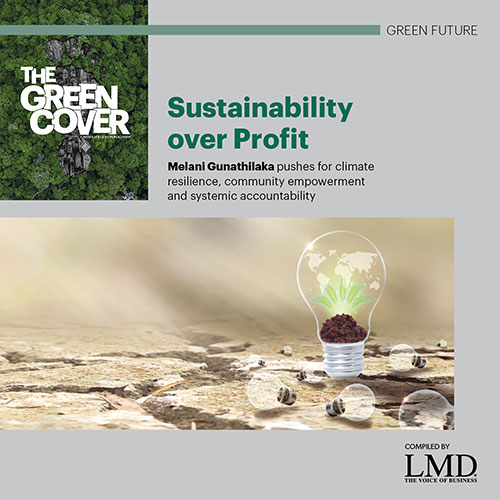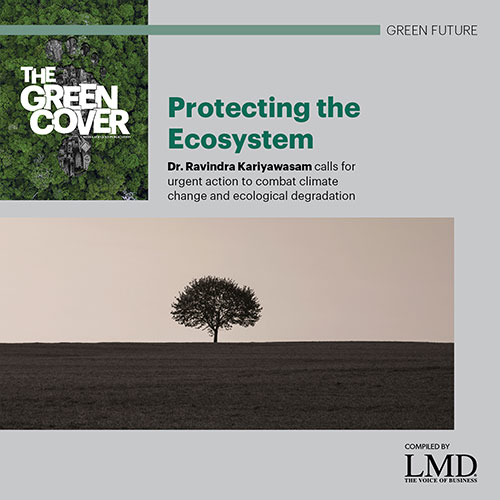GREEN FUTURE
Sustainable Digitalisation

With the exponential growth in digital consumption, technology has become central to most modern societies, expanding our digital carbon footprint.
“Every digital activity we perform has an environmental impact. A single Google search results in carbon dioxide emissions of between 0.2 and seven grammes while every email emits 0.3-50g,” avers PwC Sri Lanka’s Director of Consulting, ESG and D&I Leader Zahra Cader.
Delving into this, she explains: “With over 4.6 billion active internet users worldwide, a figure that’s growing, the impact is significant. Therefore, being aware of the digital impact and incorporating sustainable business IT strategies is crucial to reducing the global carbon footprint.”
The digital carbon footprint refers to the greenhouse gas (GHG) emissions produced by digital technology resources, devices, tools and platforms. It is responsible for around four percent of emissions, accounting for more CO2 emissions than global air traffic produces today.
“Simple steps could be taken to lower the impact of our digital presence including changing email habits, keeping devices clutter free, limiting cloud use, reducing search engine usage by bookmarking favourite sites, limiting unnecessary streaming or powering off devices not in use – all of which can help save energy,” Cader emphasises.
Moreover, she notes that awareness of carbon emissions can help shift the country’s mindset towards minimising its impact.
As for organisations, she states: “Calculating and monitoring the digital carbon footprint, and adopting measures to increase energy and supply chain efficiencies must be a focus.”
A major challenge Cader sees in promoting green technologies is Sri Lanka not being as carbon conscious as it should be especially in the local market. Stressing that it’s time for a change, she affirms: “It is an opportunity for Sri Lanka to use sustainable and green prospects to recover from the recent crises. As such, enhancing renewable energy sources and adopting greener technologies such as ‘greentech’ and ‘cleantech’ is vital.”
“We must all take responsibility for our digital carbon footprint for a better future because today’s emissions cause tomorrow’s climate change
“With sustainability being a priority for many corporates, there are several initiatives geared to reduce energy consumption. The digital carbon footprint has not received as much attention yet and incorporating sustainable practices in business IT strategy will need to be a focus area,” she maintains.
Calling for innovative technologies to build a carbon conscious and energy efficient Sri Lanka with the government’s support, Cader concludes: “We must all take responsibility for our digital carbon footprint for a better future because today’s emissions cause tomorrow’s climate change.”






